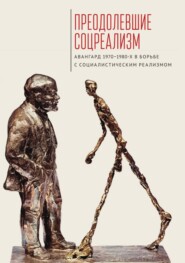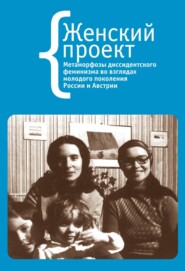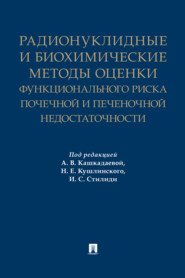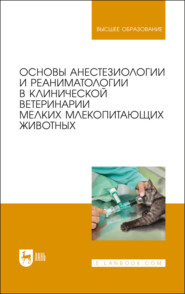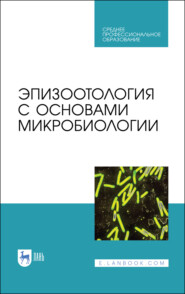По всем вопросам обращайтесь на: info@litportal.ru
(©) 2003-2024.
✖
Политическая наука №1 / 2016. Политическая организация разделенных обществ
Настройки чтения
Размер шрифта
Высота строк
Поля
Растоу Д. Переходы к демократии: попытка динамической модели // Полис. Политические исследования. – М., 1996. – № 5. – С. 5–15.
Харитонова О.Г. Президентство и демократия: состояние дискуссии // Политическая наука / РАН. ИНИОН. – М., 2012. – № 3. – С. 199–213.
Харитонова О.Г. СФРЮ: институциональные проблемы этнической федерации // Политическая наука / РАН. ИНИОН. – М., 2013. – № 3. –С. 190–205.
Bhavnani R., Miodownik D. Ethnic polarization, ethnic salience, and civil war // Journal of conflict resolution. – Ann Arbor, Mich., 2009. – Vol. 53, N 1. – Р. 30–49.
Blimes R.J. The indirect effect of ethnic heterogeneity on the likelihood of civil war onset // Journal of conflict resolution. – Ann Arbor, Mich., 2006. – Vol. 50, N 4. – P. 536–547.
Warming increases the risk of civil war in Africa / Burke M., Miguelc E., Satyanathd S., Dykemae J.A., Lobell D.B. // PNAS. – Baltimore, 2009. – Vol. 106, N 49. – Mode of access: www.pnas.orgcgidoi10.1073pnas.0907998106 (Дата посещения: 15.09.2013.)
Cary J.M., Hix S. The electoral sweet spot: Low-magnitude proportional electoral system // American journal of political science. – Detroit, MI, 2011. – Vol. 55, N 2. – P. 383–397.
Cederman L.-E., Buhaug H., R?d J.K. A GIS-based analysis // Journal of conflict resolution. – Ann Arbor, Mich., 2009. – Vol. 53, N 4. – Р. 496–525.
Cederman L.-E., Girardin L. Beyond fractionalization: Mapping ethnicity onto nationalist insurgencies // American political science review. – Cambridge, 2007. – Vol. 101, N 1. – P. 173–185.
Cederman L.-E., Hug S., Krebs L. Democratization and civil war: Empirical evidence // Journal of peace research. – Ann Arbor, Mich., 2010. – Vol. 47, N 4. – P. 377–394.
Сollier P. Ethnic civil wars. Securing the post-conflict peace // Harvard international review. – Cambridge, Mass., 2007. –Vol. 28, N 4. – P. 56–60.
Collier P., Hoeffler A. Greed and grievance in civil war // Oxford economic papers. – Oxford, 2004. – Vol. 56. – P. 563–595.
Collier P., Hoeffler A., S?derbom M. Post-conflict risks / Centre for the study of African economies, university of Oxford. – Oxford, 2006. – Mode of access: http://www.csae.ox.ac.uk/workingpapers/pdfs/2006-12text.pdf (Дата посещения: 1.11.2015.)
Downes A.B. More borders, less conflict? Partition as a solution to ethnic civil wars // SAIS Review. – Washington D.C., 2006. – Vol. 26, N 1. – P. 49–61.
Elbadawi I., Sambanis N. How much war will we see? Explaining the prevalence of civil war // Journal of conflict resolution. – Ann Arbor, Mich., 2002. – Vol. 46. – P. 307–334.
Ellingsen T. Colorful community or ethnic witches' brew?: Multiethnicity and domestic conflict during and after the Cold War // Journal of conflict resolution. – Ann Arbor, Mich., 2000. – Vol. 44, N 2. – P. 228–249.
Esteban J., Ray D. Polarization, fractionalization and conflict // Journal of peace research. – Oslo, 2008. – Vol. 45, N 2. – P. 163–182.
Fearon J. Ethnic war as a commitment problem: Paper presented at the 1994 Annual Meetings of the APSA, N.Y., August 30 – September 2. – Из личного архива О.Г. Харитоновой.
Fearon J. Why do some civil wars last so much longer than others? // Journal of peace research. – Oslo, 2004. – Vol. 41, N 3. – P. 275–301.
Fearon J., Laitin D. Ethnicity, insurgency, and civil war // American political science review. – Washington, D.C., 2003. – Vol. 97, N 1. – P. 75–90.
Fearon J., Kasara K., Laitin D. Ethnic minority rule and civil war onset // American political science review. – Washington, D.C., 2007. – Vol. 101, N 1. – P. 187–193.
Fish S., Jensenius F.R., K. Michel E. Islam and large-scale political violence: Is there a connection? // Comparative political studies. – Thousand Oaks, CA, 2010. – Vol. 43, N 11. – P. 1327–1362.
Fjelde H. Generals, dictators, and kings: Authoritarian regimes and civil conflict, 1973–2004 // Conflict management and peace science. – Philadelphia, PA, 2010. – Vol. 27, N 3. – P. 195–218.
Fox J. Two Civilizations and ethnic conflict: Islam and the west // Journal of peace research. – Oslo, 2001. – Vol. 38, N 4. – P. 459–472.
Gandhi J., Vreeland J. Political institutions and civil war: Unpacking anocracy. – 2004. – Из личного архива О.Г. Харитоновой.
Institutional inconsistency and political instability: Persistence and change in political systems revisited, 1800–1998 / Gates S., Hegre H., Jones M.P., Strand H. // American journal of political science. – Detroit, MI, 2006. – Vol. 50, N 4. – P. 893–908.
Gleditsch N.P. Whither the weather? Climate change and conflict // Journal of peace research. – Oslo, 2012. – Vol. 49, N 1. – P. 3–9.
A global forecasting model of political instability / Goldstone J.A., Bates R.H., Gurr T.R., Lustik M., Marshall M.G., Ulfelder J.: Paper prepared for presentation at the Annual Meeting of the APSA, Washington, DC, September 1–4, 2005. – Из личного архива О.Г. Харитоновой.
Gurr T.D. Political rebellion. Causes, outcomes and alternatives. – L.; N.Y.: Routledge, 2015. – 291 p.
Toward a democratic civil peace? Democracy, political change, and civil war, 1816–1992 / Hegre H., Ellingsen T., Gates S., Gleditsch N.P. // American political science review. – Washington, D.C., 2001. – Vol. 95, N 1. – P. 33–48.
Hegre H., Sambanis N. Sensitivity analysis of empirical results on civil war onset // Journal of conflict resolution. – Ann Arbor, Mich., 2006. – Vol. 50, N 4. – P. 508–535.
Horowitz D. Democracy in divided societies // Journal of democracy. – Baltimore, MD, 1993. –Vol. 4, N 4. – P. 18–38.
Karl T.L. Democracy over a barrel: Oil, regime change and war / Center for the study of democracy, Univ. of California. – Irvine, 2008. – Из личного архива О.Г. Харитоновой.
Kaufmann C.D. When all else fails: Ethnic population transfers and partitions in the twentieth century // International security. – Cambridge, MA, 1998. – Vol. 23, N 2. –P. 120–156.
Krebs L.F., Vorrath J. Democratisation and conflict in ethnically divided societies. // Living reviews in democracy. – Zurich, Switzerland: Center for Comparative and International Studies: NCCR Democracy, 2009. – Mode of access: http://www.cis.ethz.ch/content/dam/ethz/special-interest/gess/cis/cis-dam/CIS_DAM_2015/WorkingPapers/Living_Reviews_Democracy/Vorrath%20Krebs.pdf (Дата посещения: 21.12.2015.)
Montalvo J., Reynal-Querol M. Ethnic polarization, potential conflict, and civil wars // American economic review. – Nashville, Tenn., 2005. – Vol. 95, N 3. – P. 796–816.
Posen B.R. The security dilemma and ethnic conflict // Survival. – Oxford, 1993. –Vol. 35, N 1. – P. 27–47.
Reynal-Quero M. Ethnicity, political systems, and civil wars // Journal of conflict resolution. – Ann Arbor, Mich., 2002. – Vol. 46, N 1. – P. 29–54.
Reynolds A., Reilly B. Electoral system design: The new international IDEA Handbook. – Stockholm: International institute for democracy and electoral assistance, 2008. – 223 p.
Roeder P.G. Clash of civilizations and escalation of domestic ethnopolitical conflicts // Comparative political studies. – Thousand Oaks, CA, 2003. – Vol. 36, N 5. – P. 509–540.
Sambanis N. Partition as a solution to ethnic war: An empirical critique of the theoretical literature // World politics. – Baltimore, 2000. – Vol. 52, N 4. – Р. 437–483.
Stepan A., Linz J., Yadav Y. Crafting state-nations. India and other multinational democracies. – Baltimore: The Johns Hopkins univ. press, 2011. – 336 p.
Walter B. Does conflict beget conflict? Explaining recurring civil war // Journal of peace research. – Oslo, 2004. – Vol. 41, N 3. – P. 371–388.
Zartman W.I. Conflict resolution and negotiation // The SAGE handbook of conflict resolution / Bercovitch J. et al. ed. – L.: Sage, 2009. – P. 322–339.
Контекст: политический контроль в разделенных обществах
Саудовская Аравия: национальное единство без плюрализации
Г.Г. Косач[17 - Косач Григорий Григорьевич, доктор исторических наук, профессор кафедры современного Востока факультета истории, политологии и права Историко-архивного института Российского государственного гуманитарного университета, e-mail: g.kosach@mail.ruKosach Grigori, Russian State University for the Humanities (Moscow, Russia), e-mail: g.kosach@mail.ru]
Аннотация. В статье рассматриваются проблемы развития фрагментированного саудовского общества в контексте его исторической эволюции, начиная с момента создания государства. Особое внимание уделяется вопросам взаимодействия политической элиты и отдельных фрагментов социума, прежде всего не принадлежащих к господствующей ханбалитско-ваххабитской версии ислама. В связи с этим автор обращается к анализу действий государства, направленных на создание элементов представительной власти, а также взаимодействия общества и вновь появляющихся институтов, подчеркивая, что возможность становления в Саудовской Аравии национально ориентированного общества – все еще далекая перспектива.
Ключевые слова: Саудовская Аравия; Ибн Сауд; ислам; суннитский ислам; ваххабитская версия ханбалитской правовой школы; шииты; исмаилиты; модернизация; Консультативный совет; муниципальные выборы; Центр национального диалога.
G.G. Kosach
Харитонова О.Г. Президентство и демократия: состояние дискуссии // Политическая наука / РАН. ИНИОН. – М., 2012. – № 3. – С. 199–213.
Харитонова О.Г. СФРЮ: институциональные проблемы этнической федерации // Политическая наука / РАН. ИНИОН. – М., 2013. – № 3. –С. 190–205.
Bhavnani R., Miodownik D. Ethnic polarization, ethnic salience, and civil war // Journal of conflict resolution. – Ann Arbor, Mich., 2009. – Vol. 53, N 1. – Р. 30–49.
Blimes R.J. The indirect effect of ethnic heterogeneity on the likelihood of civil war onset // Journal of conflict resolution. – Ann Arbor, Mich., 2006. – Vol. 50, N 4. – P. 536–547.
Warming increases the risk of civil war in Africa / Burke M., Miguelc E., Satyanathd S., Dykemae J.A., Lobell D.B. // PNAS. – Baltimore, 2009. – Vol. 106, N 49. – Mode of access: www.pnas.orgcgidoi10.1073pnas.0907998106 (Дата посещения: 15.09.2013.)
Cary J.M., Hix S. The electoral sweet spot: Low-magnitude proportional electoral system // American journal of political science. – Detroit, MI, 2011. – Vol. 55, N 2. – P. 383–397.
Cederman L.-E., Buhaug H., R?d J.K. A GIS-based analysis // Journal of conflict resolution. – Ann Arbor, Mich., 2009. – Vol. 53, N 4. – Р. 496–525.
Cederman L.-E., Girardin L. Beyond fractionalization: Mapping ethnicity onto nationalist insurgencies // American political science review. – Cambridge, 2007. – Vol. 101, N 1. – P. 173–185.
Cederman L.-E., Hug S., Krebs L. Democratization and civil war: Empirical evidence // Journal of peace research. – Ann Arbor, Mich., 2010. – Vol. 47, N 4. – P. 377–394.
Сollier P. Ethnic civil wars. Securing the post-conflict peace // Harvard international review. – Cambridge, Mass., 2007. –Vol. 28, N 4. – P. 56–60.
Collier P., Hoeffler A. Greed and grievance in civil war // Oxford economic papers. – Oxford, 2004. – Vol. 56. – P. 563–595.
Collier P., Hoeffler A., S?derbom M. Post-conflict risks / Centre for the study of African economies, university of Oxford. – Oxford, 2006. – Mode of access: http://www.csae.ox.ac.uk/workingpapers/pdfs/2006-12text.pdf (Дата посещения: 1.11.2015.)
Downes A.B. More borders, less conflict? Partition as a solution to ethnic civil wars // SAIS Review. – Washington D.C., 2006. – Vol. 26, N 1. – P. 49–61.
Elbadawi I., Sambanis N. How much war will we see? Explaining the prevalence of civil war // Journal of conflict resolution. – Ann Arbor, Mich., 2002. – Vol. 46. – P. 307–334.
Ellingsen T. Colorful community or ethnic witches' brew?: Multiethnicity and domestic conflict during and after the Cold War // Journal of conflict resolution. – Ann Arbor, Mich., 2000. – Vol. 44, N 2. – P. 228–249.
Esteban J., Ray D. Polarization, fractionalization and conflict // Journal of peace research. – Oslo, 2008. – Vol. 45, N 2. – P. 163–182.
Fearon J. Ethnic war as a commitment problem: Paper presented at the 1994 Annual Meetings of the APSA, N.Y., August 30 – September 2. – Из личного архива О.Г. Харитоновой.
Fearon J. Why do some civil wars last so much longer than others? // Journal of peace research. – Oslo, 2004. – Vol. 41, N 3. – P. 275–301.
Fearon J., Laitin D. Ethnicity, insurgency, and civil war // American political science review. – Washington, D.C., 2003. – Vol. 97, N 1. – P. 75–90.
Fearon J., Kasara K., Laitin D. Ethnic minority rule and civil war onset // American political science review. – Washington, D.C., 2007. – Vol. 101, N 1. – P. 187–193.
Fish S., Jensenius F.R., K. Michel E. Islam and large-scale political violence: Is there a connection? // Comparative political studies. – Thousand Oaks, CA, 2010. – Vol. 43, N 11. – P. 1327–1362.
Fjelde H. Generals, dictators, and kings: Authoritarian regimes and civil conflict, 1973–2004 // Conflict management and peace science. – Philadelphia, PA, 2010. – Vol. 27, N 3. – P. 195–218.
Fox J. Two Civilizations and ethnic conflict: Islam and the west // Journal of peace research. – Oslo, 2001. – Vol. 38, N 4. – P. 459–472.
Gandhi J., Vreeland J. Political institutions and civil war: Unpacking anocracy. – 2004. – Из личного архива О.Г. Харитоновой.
Institutional inconsistency and political instability: Persistence and change in political systems revisited, 1800–1998 / Gates S., Hegre H., Jones M.P., Strand H. // American journal of political science. – Detroit, MI, 2006. – Vol. 50, N 4. – P. 893–908.
Gleditsch N.P. Whither the weather? Climate change and conflict // Journal of peace research. – Oslo, 2012. – Vol. 49, N 1. – P. 3–9.
A global forecasting model of political instability / Goldstone J.A., Bates R.H., Gurr T.R., Lustik M., Marshall M.G., Ulfelder J.: Paper prepared for presentation at the Annual Meeting of the APSA, Washington, DC, September 1–4, 2005. – Из личного архива О.Г. Харитоновой.
Gurr T.D. Political rebellion. Causes, outcomes and alternatives. – L.; N.Y.: Routledge, 2015. – 291 p.
Toward a democratic civil peace? Democracy, political change, and civil war, 1816–1992 / Hegre H., Ellingsen T., Gates S., Gleditsch N.P. // American political science review. – Washington, D.C., 2001. – Vol. 95, N 1. – P. 33–48.
Hegre H., Sambanis N. Sensitivity analysis of empirical results on civil war onset // Journal of conflict resolution. – Ann Arbor, Mich., 2006. – Vol. 50, N 4. – P. 508–535.
Horowitz D. Democracy in divided societies // Journal of democracy. – Baltimore, MD, 1993. –Vol. 4, N 4. – P. 18–38.
Karl T.L. Democracy over a barrel: Oil, regime change and war / Center for the study of democracy, Univ. of California. – Irvine, 2008. – Из личного архива О.Г. Харитоновой.
Kaufmann C.D. When all else fails: Ethnic population transfers and partitions in the twentieth century // International security. – Cambridge, MA, 1998. – Vol. 23, N 2. –P. 120–156.
Krebs L.F., Vorrath J. Democratisation and conflict in ethnically divided societies. // Living reviews in democracy. – Zurich, Switzerland: Center for Comparative and International Studies: NCCR Democracy, 2009. – Mode of access: http://www.cis.ethz.ch/content/dam/ethz/special-interest/gess/cis/cis-dam/CIS_DAM_2015/WorkingPapers/Living_Reviews_Democracy/Vorrath%20Krebs.pdf (Дата посещения: 21.12.2015.)
Montalvo J., Reynal-Querol M. Ethnic polarization, potential conflict, and civil wars // American economic review. – Nashville, Tenn., 2005. – Vol. 95, N 3. – P. 796–816.
Posen B.R. The security dilemma and ethnic conflict // Survival. – Oxford, 1993. –Vol. 35, N 1. – P. 27–47.
Reynal-Quero M. Ethnicity, political systems, and civil wars // Journal of conflict resolution. – Ann Arbor, Mich., 2002. – Vol. 46, N 1. – P. 29–54.
Reynolds A., Reilly B. Electoral system design: The new international IDEA Handbook. – Stockholm: International institute for democracy and electoral assistance, 2008. – 223 p.
Roeder P.G. Clash of civilizations and escalation of domestic ethnopolitical conflicts // Comparative political studies. – Thousand Oaks, CA, 2003. – Vol. 36, N 5. – P. 509–540.
Sambanis N. Partition as a solution to ethnic war: An empirical critique of the theoretical literature // World politics. – Baltimore, 2000. – Vol. 52, N 4. – Р. 437–483.
Stepan A., Linz J., Yadav Y. Crafting state-nations. India and other multinational democracies. – Baltimore: The Johns Hopkins univ. press, 2011. – 336 p.
Walter B. Does conflict beget conflict? Explaining recurring civil war // Journal of peace research. – Oslo, 2004. – Vol. 41, N 3. – P. 371–388.
Zartman W.I. Conflict resolution and negotiation // The SAGE handbook of conflict resolution / Bercovitch J. et al. ed. – L.: Sage, 2009. – P. 322–339.
Контекст: политический контроль в разделенных обществах
Саудовская Аравия: национальное единство без плюрализации
Г.Г. Косач[17 - Косач Григорий Григорьевич, доктор исторических наук, профессор кафедры современного Востока факультета истории, политологии и права Историко-архивного института Российского государственного гуманитарного университета, e-mail: g.kosach@mail.ruKosach Grigori, Russian State University for the Humanities (Moscow, Russia), e-mail: g.kosach@mail.ru]
Аннотация. В статье рассматриваются проблемы развития фрагментированного саудовского общества в контексте его исторической эволюции, начиная с момента создания государства. Особое внимание уделяется вопросам взаимодействия политической элиты и отдельных фрагментов социума, прежде всего не принадлежащих к господствующей ханбалитско-ваххабитской версии ислама. В связи с этим автор обращается к анализу действий государства, направленных на создание элементов представительной власти, а также взаимодействия общества и вновь появляющихся институтов, подчеркивая, что возможность становления в Саудовской Аравии национально ориентированного общества – все еще далекая перспектива.
Ключевые слова: Саудовская Аравия; Ибн Сауд; ислам; суннитский ислам; ваххабитская версия ханбалитской правовой школы; шииты; исмаилиты; модернизация; Консультативный совет; муниципальные выборы; Центр национального диалога.
G.G. Kosach






